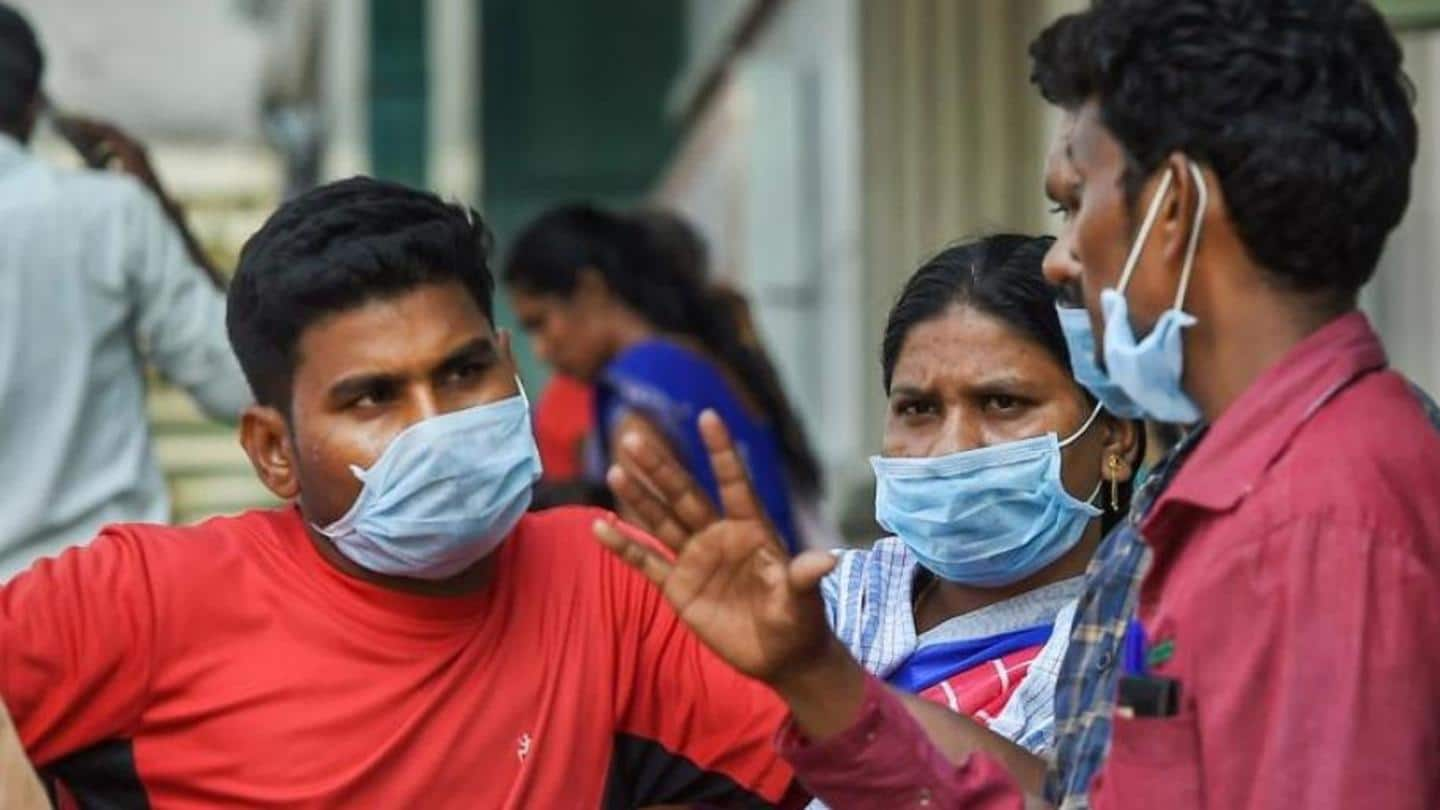
To reduce coronavirus spread, you need to limit your talking
What's the story
Since the beginning of the coronavirus pandemic, experts have stressed the importance of wearing masks, maintaining social distancing, among other health precautions. However, one behavioral tactic that contributes immensely to viral transmission seems to have largely gone ignored: talking. Experts surmise that if everyone just shut up for about two months, the pandemic could simply die off.
Transmission
How does the coronavirus spread?
The coronavirus spreads via the respiratory route; through mucus and saliva droplets ejected from the mouth/nose. These could be large droplets, that settle down on nearby surfaces once ejected, or small droplets that may linger in the air for several minutes. Such infectious droplets could be emitted while coughing or sneezing, but also while breathing (particularly heavy breathing), talking, laughing, or singing.
Details
'People exhale 10 times more virus when shouting'
"People need to understand that this virus is in the air and that they breathe out 10 times more virus when they are shouting or speaking loudly," Professor Jose L. Jimenez told The Atlantic. Jimenez is a professor at the University of Colorado at Boulder and studies disease transmission. According to Jimenez, staying quiet, or talking quietly can reduce the risk of transmission significantly.
Quote
'If everybody stopped talking, the pandemic would probably die off'
"Every route of viral transmission would go down if we talked less, or talked less loudly, in public spaces," Jimenez told The Atlantic, "This is just a very clear fact. It's not controversial." "The truth is that if everybody stopped talking for a month or two, the pandemic would probably die off," he said, continuing to emphasize the importance of distancing.
Experts’ opinion
Speaking quietly could reduce transmission risk by 5X
Jimenez said quiet talking can reduce transmission through small droplets or aerosols by a factor of five, compared to yelling. If a person remains completely silent, the risk of transmission drops further by a factor of 50. Donald K Milton—a professor at the University of Maryland School of Public Health—said that "silence and quiet speaking are reasonable means of intervening" to reduce COVID-19 transmission.
Japan
Japan's culture of silence could be behind coronavirus success
The Atlantic report highlighted the example of Japan, where a culture of staying quiet in public places may have contributed to the success in handling the outbreak. Japan notably had no mass testing or sophisticated means of contract tracing, however, the public guidance clearly advised against the three C's: closed spaces, crowded places, and close-contact settings, including "close-range conversations."
Information
No outbreaks on Tokyo subway despite resumption of services
Even after transit ridership returned to normal, Japan did not report any outbreaks on Tokyo's subway. Although there is no established correlation, it must be noted that Japanese commuters have an informal rule to avoid loud or any conversations on trains.
Conclusion
Shutting up could make our surroundings safer
Often, after wearing masks, people continue to engage in close conversations, sometimes even pulling down their masks to speak more clearly. However, it is important to understand the purpose of wearing masks, which is to block viral particles from being inhaled or exhaled, is only augmented by recognizing that if we just shut up (if and when possible), we could make our surroundings safer.